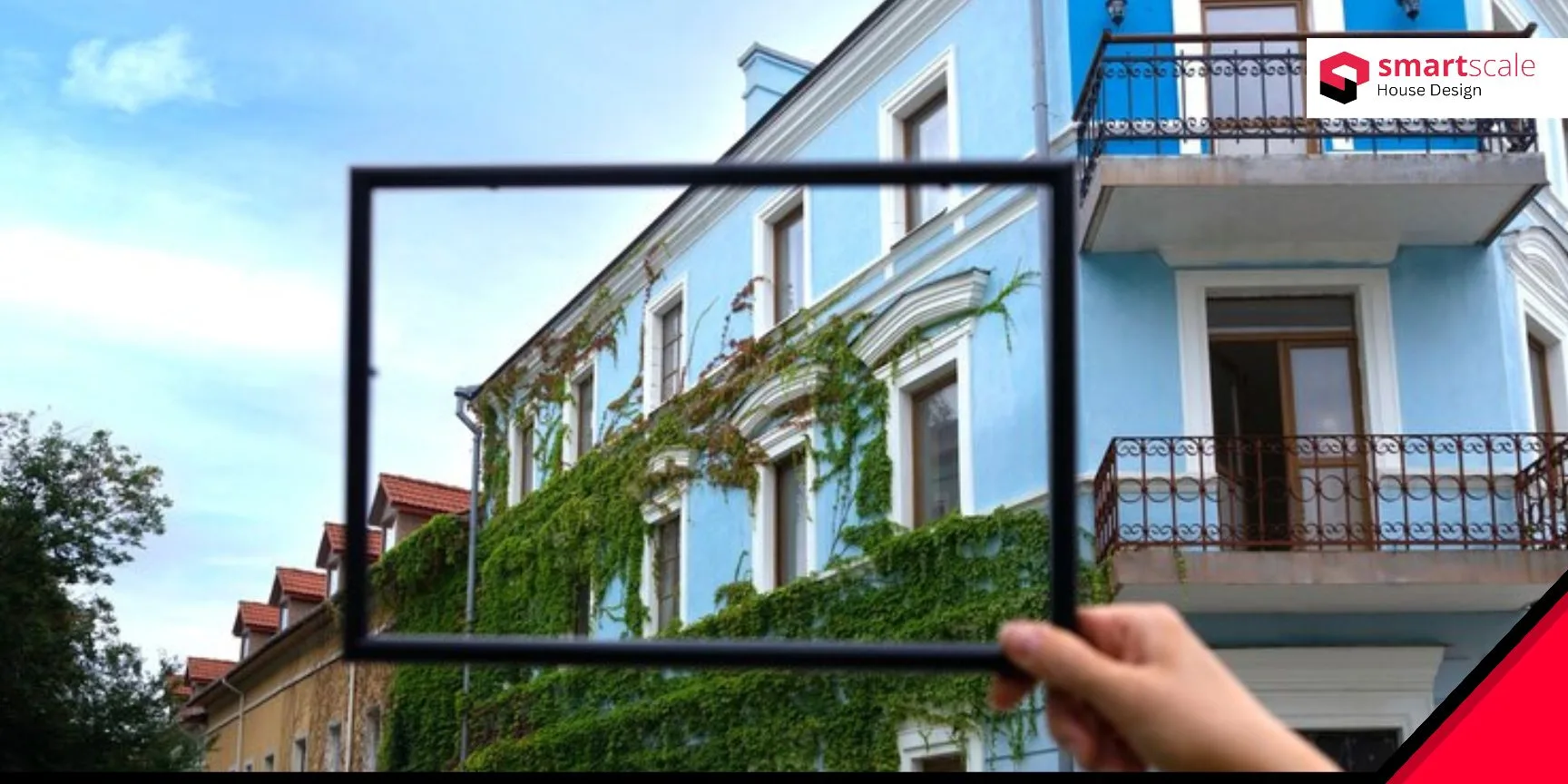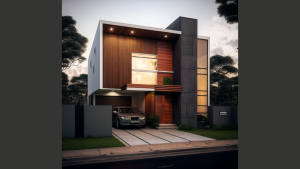Building your dream home is an exciting journey. But before laying the first brick, one of the most important decisions you need to make is choosing the right architect. A good architect will not only design your home beautifully but also make sure it is practical, budget-friendly, and Vastu-compliant (if needed).
In this blog, we’ll walk you through how to choose an architect for building in India step by step.
1. Understand the Role of an Architect
Many people think an architect only draws house plans—but that’s just one part of their job. An architect plays a key role in building your home from start to finish. They:
Plan the layout: Decide where each room, window, and wall should go to ensure good use of space and natural light.
Help with approvals: They know the rules and can help you get building permissions from the local government.
Coordinate with others: Architects often work with structural engineers, electricians, and contractors to make sure everything is done safely and correctly.
Follow laws and safety rules: Your home needs to meet building codes and legal standards. The architect ensures this.
Work with your budget and taste: A good architect helps you build a home that looks good, feels comfortable, and stays within your budget.
2. Know Your Needs First
Before meeting any architect, you should be clear about what you want in your dream home. This helps you explain your ideas and choose someone who understands your vision.
Ask yourself:
Plot size: How big is the land? This affects the size and style of your house.
Number of floors or rooms: Do you want a single-floor house or a duplex? How many bedrooms, bathrooms, etc.?
Style preference: Are you interested in a modern, traditional, or eco-friendly design?
Vastu Shastra: Do you follow Vastu principles? If yes, your architect must consider that in the design.
Budget: Have a rough idea of how much you can spend, including design, materials, and construction.
Knowing these things in advance makes your conversation with the architect more productive and helps avoid delays later.
3. Look for Architects Near You
Finding the right architect begins with research. Here are some places to start:
Google search: Try searching terms like “best residential architects in Hyderabad” or “home architect near me.”
Ask for referrals: Talk to friends, relatives, or neighbors who recently built a house. They can recommend trusted professionals.
Social media and websites: Many architects showcase their work on Instagram, Pinterest, or platforms like Houzz and ArchDaily.
Local listings: Check business directories or real estate platforms to find architects near your plot.
Why choose a local architect?
Local architects understand the weather, soil, and building rules of your area. They also have better connections with contractors and suppliers, which can help reduce costs and speed up construction.
4. Check Their Portfolio
A portfolio is a collection of an architect’s past work. Always ask to see it before making a decision. It helps you judge their quality, creativity, and experience.
Look for:
Design quality: Are the homes well-designed and attractive?
Practical layouts: Do the homes look livable and comfortable, not just stylish?
Use of natural light and space: Good architects make homes feel open and bright.
Variety: Have they worked on different types of homes—like villas, bungalows, or duplexes?
Customer reviews: Ask past clients how their experience was. Were they satisfied?
Some architects also create 3D designs or video walkthroughs of homes. This gives you a better idea of how your house will look once built.
5. Discuss Budget and Fees
Talking about money may feel awkward, but it’s very important to avoid surprises later. Architects in India usually charge in one of three ways:
A. Percentage of Total Construction Cost
The architect charges a percentage (usually 5–10%) of the total house construction cost.
Example: If your home costs ₹40 lakh to build, the architect might charge ₹2–4 lakh.
B. Fixed Project Fee
You pay a fixed amount for the entire project, regardless of the house size or materials used.
Best when the scope is clearly defined from the beginning.
C. Per Square Foot Rate
Common in many cities. The architect charges based on the total built-up area.
Example: ₹100 per sq. ft. × 2,000 sq. ft. = ₹2 lakh
What to Discuss Before Hiring:
What’s included in the fee?
Ask if their price includes only the design or also site visits, structural plans, and help with permissions.Design revisions:
Most architects allow 2–3 design changes for free. Extra changes may cost more.Payment schedule:
Will you pay in phases? For example—30% at the start, 40% after design approval, and the rest at project completion?
Important Tip:
Get everything in writing. A written agreement avoids confusion later. It should clearly mention:
What services are included
Project timelines
Fee structure and payment schedule
Number of free revisions
Additional charges, if any
6. Ask About Team and Services
Not all architects work the same way. Some may work independently, while others have a full team.
What kind of team?
Structural Engineers – They ensure your home is strong and stable.
Interior Designers – They help design your interiors like kitchens, bedrooms, lighting, and furniture layout.
3D Visualizers – They create 3D models or walkthroughs so you can see how your home will look before building begins.
Site Supervisors – They visit the site and make sure the construction follows the design plan.
Why this matters:
If your project is large or complex, it’s better to go with an architect who has a full-service team. You’ll get everything in one place, which saves time and ensures smooth coordination.
For smaller homes, an independent architect might be enough—just make sure they collaborate with other required experts.
7. Check Licensing and Experience
Before hiring any architect, make sure they are qualified and officially registered.
What to check:
Educational Qualification: Look for someone with a degree like B.Arch (Bachelor of Architecture) or M.Arch (Master of Architecture).
COA Registration: In India, all practicing architects must be registered with the Council of Architecture (COA). You can even check this on the COA website.
Experience: Choose someone who has handled residential projects, not just offices or commercial buildings. Home designs require a different approach.
Why it matters:
An experienced and registered architect knows how to:
Handle design challenges
Get approvals from municipal offices
Deal with practical issues during construction
This ensures that your home-building process goes smoothly and legally.
8. Ensure Easy Communication
You’ll be working with your architect for several months, from the design phase to construction. So, good communication is essential.
What to look for:
Do they listen to you? A good architect considers your needs, lifestyle, and preferences.
Do they explain clearly? They should be able to simplify complex terms so you understand the plan.
Do they share updates? Regular updates help you track progress and feel confident.
Are they open to feedback? You may change your mind about things—your architect should be flexible and willing to make adjustments.
Why it matters:
A good working relationship leads to better design results. If you feel comfortable talking to your architect, it’ll be easier to share ideas, ask questions, and raise concerns.
9. Ask the Right Questions
The first meeting with an architect is very important. It helps you judge whether they’re the right fit for your project.
Sample questions to ask:
Have you designed similar homes before?
Helps you know if they understand your style and needs.What is your design process?
Some architects involve clients at every step, while others work more independently.How long will the design phase take?
Get a clear timeline so you can plan accordingly.Will you help with building approvals?
Many architects assist with getting permissions from local authorities.How often will you visit the site?
Site visits are important to ensure the construction follows the plan.Can I make changes during the project?
Make sure they allow some flexibility for adjustments.
Why this matters:
These questions help you understand the architect’s working style, professionalism, and willingness to collaborate. You can also compare answers from different architects to decide who feels right.
10. Sign a Written Agreement
Once you’ve selected the architect, always sign a formal agreement before any work begins.
The contract should include:
Scope of Work: What the architect will be responsible for (design, structural drawings, site visits, etc.).
Design Timelines: When you can expect design drafts and final versions.
Fees and Payment Terms: Total cost, payment schedule, and any extra charges.
Number of Revisions: How many design changes are included in the fee.
Roles and Responsibilities: Who handles what, especially if other consultants or teams are involved.
Why this matters:
A written agreement protects both you and the architect. It avoids confusion, delays, and unexpected costs later. It also ensures that everyone is on the same page.
Conclusion
Understanding how to choose an architect for home building in India is a crucial first step in turning your dream home into reality. It’s not just about design it’s about selecting a professional who understands your lifestyle, respects your budget, and guides you through every stage of the process.
Take your time, explore your options, and choose an architect who aligns with your vision. With the right guidance, your home-building journey will be smoother, stress-free, and truly rewarding.
Build Smart. Build Beautiful With Smartscale House Design
Looking for the right architect to bring your dream home to life? At SmartScale House Design, we offer expert architectural services tailored to your plot size, budget, and lifestyle. From Vastu-compliant plans to 3D designs and site supervision we’ve got it all covered.
Contact us today for a free consultation and take the first step toward your perfect home!
FAQs
1. How to decide which architect to use?
To decide which architect to hire, consider the following:
Look at their past work (portfolio)
Check if they understand your needs (plot size, style, Vastu, budget)
Verify their experience in residential projects
Read reviews or ask for client references
See how well they communicate and explain ideas
Compare fees and services offered
Choose someone who balances creativity with practicality and works well with your vision.
2. How much does it cost for an architect to draw a house?
Architect fees in India typically range in three ways:
Percentage of construction cost: Usually 5–10%
Fixed project fee: Agreed amount based on scope
Per square foot: ₹50–₹200 per sq. ft. (average)
The cost depends on your house size, design complexity, and what services are included (like 3D views, site visits, structural drawings).
3. What is a key factor in selecting an architect?
The key factor is how well the architect understands your vision, budget, and lifestyle. Even the most experienced architect won’t be a good fit if they can’t translate your needs into a workable design. Communication, experience with similar homes, and trust are equally important.
4. What is the best question to ask an architect?
A great question to ask is:
“Can you walk me through your design process and how you include client input?”
This helps you understand their working style, flexibility, and how much involvement you’ll have in shaping your own home.
Other good questions:
Have you worked on similar residential projects?
What’s your fee structure?
Will you help with building approvals?
How do you handle design changes or revisions?
5. How to choose a residential architect?
To choose a residential architect:
Look for someone with experience in home design
Check if they follow local building laws and Vastu (if needed)
Review their past residential work
Ensure they’re registered with the Council of Architecture (COA)
Ask how they manage projects, timelines, and costs
Residential architecture requires a different approach from commercial work—make sure your architect understands home needs.
6. How to hire an architect in India?
Here’s a simple step-by-step:
Define your needs: Budget, style, plot size, Vastu, number of floors.
Search for architects near you: Use Google, Houzz, social media, or referrals.
Check their portfolio and reviews
Schedule consultations: Meet 2–3 architects before deciding.
Discuss fees, timelines, and services
Verify COA registration and experience
Sign a written agreement before starting the project








